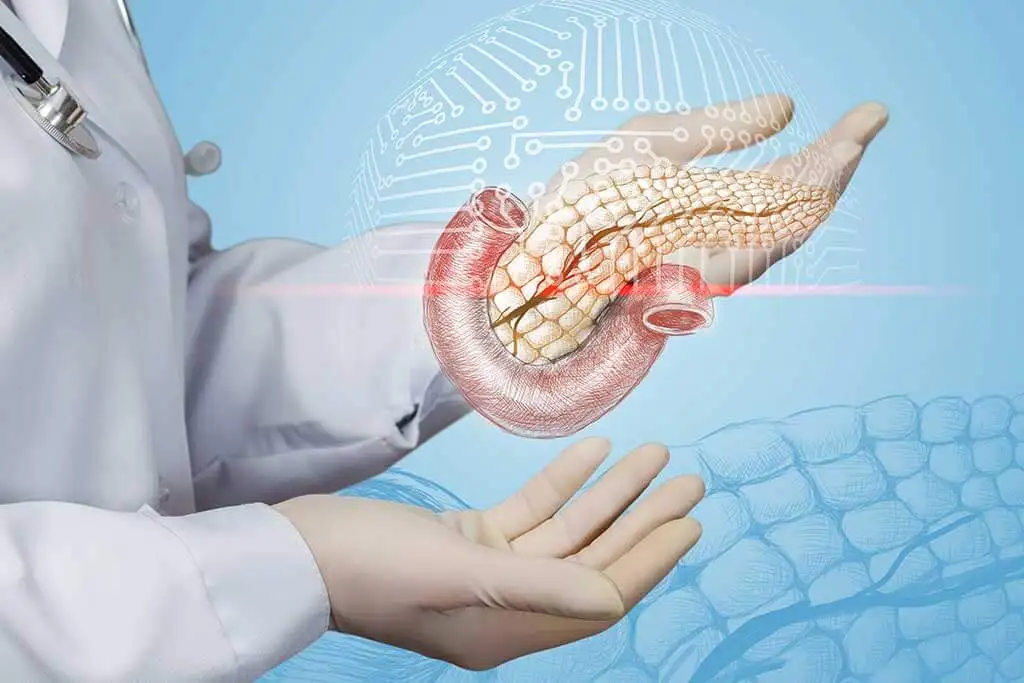Ketosis: What It Is, The Causes, Symptoms, and Consequences


Reviewed and approved by the nurse Leidy Mora Molina
Ketosis can occur naturally in the body, for metabolic reasons, or it can be induced through a certain type of diet. In this process, the body uses its own fat or fat from food to produce energy.
This is said to bring some benefits – for example, when it comes to weight loss or controlling one’s weight. However, there are also some undesired consequences related to gastrointestinal, metabolic, and bone alterations.
In this article, we’ll take a closer look at what ketosis is, how it takes place, and tell you about its symptoms.
What does “ketosis” mean?
According to its etymology, this term comes from keto or keto (in Latin), which has to do with ketones. Together with the suffix -osis, which is a frequent formant in disease names, it denotes an abnormal condition, degeneration, wasting, or disorder.
In summary, the meaning of the word ketosis in the current medical field refers to a condition in which there’s an abnormally high level of ketones in the body. Ketones are organic compounds that have a carbonyl group attached to carbon atoms.
According to research, in the absence of carbohydrates, fats are degraded for energy, producing ketone bodies in the liver. The best-known are 3-hydroxybutyrate (3HB) and acetoacetate (AcAc). These are transported to the tissues to enable the body to function properly.
The possible causes of ketosis
Ketosis occurs when the body begins to use fats as the main source of energy instead of carbohydrates. Especially when these are not available in sufficient quantity.
There are several possible explanations or causes, which are as follows:
- Activated lipid energy metabolism during pregnancy and also in childhood
- Diets in which there is a low carbohydrate intake
- Exercise or intense physical activity
- A lack of growth hormones
- Prolonged periods of fasting
- A diet that’s very rich in fats
- Metabolic disorders
- Diabetes and hypoglycemia
- Alcohol intoxication

We think you may also enjoy reading this article: The Lazy Keto Diet: What Is It and What Are its Risks?
The ketogenic diet
The so-called ketogenic diet or keto diet, is precisely made in order to burn fat by decreasing the consumption of carbohydrates. This refers to sugars, flours, and tubers, among others. At the same time, the consumption of “good” fats is increased.
In such a diet, the intake of carbohydrates should not represent more than 10% of the total calories per day. Thanks to this, the generation of ketone bodies should be increased.
The symptoms of ketosis
Whether due to dieting, metabolic, pathological, or other reasons, due to ketosis changes in the functioning of the organism occur, which are manifested through various signs. The main ones are the following:
- Weakness
- Headaches
- Loss of appetite
- Bad breath (halitosis)
- Constant feeling of thirst
- occasional nausea and vomiting
- increased frequency of urination
- Constipation or, conversely, diarrhea
- The sensation of a bitter or metallic taste in the mouth
Particularly, bad breath is experienced or perceived during fasting. However, this and other symptoms may disappear after a few days, once the body adapts to the keto diet, for example.
On the other hand, increased ketone bodies can be detected in urine and blood tests. It’s considered ketosis when their concentration is above 0.5 mmol/L.
However, this can vary according to the level of hydration. There may even be false negatives.
Is ketosis beneficial?
The process of ketosis provides sufficient energy for the body to function, both physically and mentally. Now, as a result of fasting or a low-carbohydrate diet, the body can begin to burn stored fat.
This is good news for people who are overweight or obese. For this reason, there are studies that claim that ketogenic diets can improve cardiovascular health by reducing body fat percentages.
Ketosis has been associated with a reduced risk of developing various types of cancer, especially by reducing tumor size, according to some studies on the subject. In this sense, glucose is considered to be a food for cancer cells.
Ketogenic diets have also been found to provide benefits in the prevention and treatment of type 2 diabetes, improving the glycemic profile, insulin sensitivity, and plasma levels of glycosylated hemoglobin.
The use of ketogenic diets to treat neurological conditions, such as epilepsy,is in an experimental phase. And although research reports positive results, the mechanism of neuroprotective action is still not very clear.
The health consequences of ketosis
However, ketosis also carries health risks. In this respect, due to a metabolic disorder, when the body is unable to expel the ketone bodies, the blood concentrations of ketone bodies rise.
Metabolic acidosis can then occur. And if the blood becomes too acidic, it affects organ function, leading to coma and death.
Studies describe other health consequences of ketosis:
- Gastrointestinal disturbances: this includes constipation, nausea, and increased incidences of gastroesophageal reflux.
- Metabolic changes: this includes increased serum cholesterol, hypocalcemia, hypomagnesemia, low carnitine, anemia, and deficiencies of selenium, copper, and other minerals.
- Bone alterations: ketosis may interfere with phosphocalcic and vitamin D metabolism, increasing the risk of developing osteopenia and suffering fractures.
- Cases of renal lithiasis, pancreatitis, and vesicular lithiasis have been described.
However, there are some ideas surrounding ketosis that have no basis. For example, there is no evidence that the keto diet affects hair loss.

Like this article? You may also like to read: The Ketogenic Diet and Alcohol: Everything You Need to Know
Be very careful with fad diets
The ketogenic diet can be very restrictive, so the body will suffer at some point, either during the adaptation or if it’s prolonged in time. It’s therefore recommended not to extend it beyond 2 or 3 months, even with interruptions.
On the other hand, the ketogenic diet is contraindicated in certain cases. These include people over 65 years of age, pregnant or breastfeeding women, patients with liver or kidney failure, cardiovascular disease, a history of stroke, or gallstones.
Ketosis brings benefits, but also complications. It should not be taken lightly. Therefore, it’s worth remembering that this and any other diet should be done under the guidance and accompaniment of a health professional.
All cited sources were thoroughly reviewed by our team to ensure their quality, reliability, currency, and validity. The bibliography of this article was considered reliable and of academic or scientific accuracy.
- Armeno M, Caraballo R, Vaccarezza M. Consenso nacional sobre dieta cetogénica. Rev Neurol 2014; 59 (5): 213-223.
- Barrera Pongutá M, Sánchez Torres E, Umbarila Rubio S, et al. Dieta cetogénica en enfermedad convulsiva infantil: certidumbres e incertidumbres. Revista Neuronum. 2020; 6(1): 58-69.
- Bektas F, Eray O, Sari R, Akbas H. Point of care blood ketone testing of diabetic patients in the emergency department. Endocrine Research. 2004; 30:3: 395-402.
- Concha L, Durruty P, García de los Ríos M. Ketosis prone type 2 diabetes (KPD). Rev. méd. Chile. 2015; 143(9): 1215-1218.
- Dashti H, Bo-Abbas Y, Asfar S, et al. Ketogenic diet modifies the risk factors of heart disease in obese patients. Nutrition. 2003; 19: 901- 902.
- Gannon M, Nuttall F. Effect of a high-protein, lowcarbohydrate diet on blood glucose control in people with type 2 diabetes. Diabetes. 2004; 53: 2375-82.
- Mitchell G, Kassovska-Bratinova S, Boukaftane Y, et al. Medical aspects of ketone body metabolism. Clinical and Investigative medicine. Medecine Clinique et Experimentale. 1995;18(3):193-216.
- Nebeling L, Miraldi F, Shurin S, Lerner E. Effects of a ketogenic diet on tumor metabolism and nutritional status in pediatric oncology patients: two case reports. J Am Coll Nutr. 1995; 14: 202-208.
- Ríos V, Panico L, Demartini M, Carniello M. Complicaciones en el tratamiento de la epilepsia con dieta cetogénica. Rev. neurol. 2001; 33(10): 909-915.
This text is provided for informational purposes only and does not replace consultation with a professional. If in doubt, consult your specialist.








